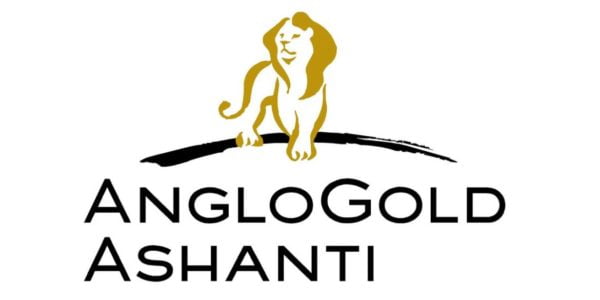Global gold mining company AngloGold Ashanti is to sell its Mponeng mine and Mine Waste Solutions (MWS) to Harmony Gold for $300m (R4.44bn), the company said in an announcement yesterday.
According to Mining MX, the R118bn gold producer said that in choosing Harmony Gold it had opted for a long-standing operator of ultra deeps mines.
“From the beginning of the process an objective has been to sell our South African assets to a strong, capable and responsible operator that will ensure their long-term sustainability,” said Kelvin Dushnisky, CEO of AngloGold Ashanti. He said the company’s management focus and capital allocation would be sharper as a result of the sale.
The transaction consists of $200m on deal closure – expected in June – with the balance payable by means of a royalty of $260 per ounce on underground gold mined in excess of 250,000 ounces a year for six years starting January 1, 2021.
In addition, $20 per oz is payable on underground production located at deeper levels of Mponeng but which requires billions of rands in additional development capital. If some 8.53 million oz in reserves located in the deeper areas were mined, it would yield $170m to AngloGold at the stated royalty.
Harmony Gold said absorbing Mponeng and Mine Waste Solutions into its portfolio would add 350,000 oz annually to production which has been guided to about 1.4 million oz in the current financial year.
The deal also increases Harmony’s South African reserves by 8.27 million oz excluding Mponeng’s reserves below existing infrastructure. “Harmony believes that the acquisition is a natural next step following the acquisition of Moab Khotsong in 2018,” it said.
Harmony bought Moab Khotsong for $300m incorporating some 250,000 oz into Harmony’s production for which CEO, Peter Steenkamp, had an aspirational target of 1.5 million oz/year. The group achieved that target last year but given the ageing nature of other mines in its portfolio, production has started slipping again.
Buying Mponeng and MWS, which also incorporates the reserves of other AngloGold ‘mines’ Savuka and Tau Tona, begs the question as to how it will allow Harmony Gold to adjust its portfolio as it has a collective life of mine of five years.
CAPITAL CONSIDERATIONS
For AngloGold, the sale means it won’t have any more operations in South Africa, although Dushnisky has been at pains to say the company’s head office and a listing would be kept in Johannesburg, the former owing to the low cost of operation.
For Harmony Gold, buying Mponeng and MWS makes it easily the standard-bearer for the South African gold industry with production of about 1.7 million oz assuming the company decides not to take the opportunity to close marginal operations. In any event, production from Unisel and Masimong will disappear in six to 18 months as they run out of gold.
Peter Steenkamp, CEO of Harmony Gold, said he considered the price paid for the asset was “fair”, but he declined to comment on whether the company would take up the option of developing the eight million plus oz of reserves below infrastructure.
This is gold that requires billions of rands in capital expenditure to exploit but which would extend the life of Mponeng by 20 years, according to previous AngloGold estimates. “We would extend declines to access that gold but we’ve made no decision on that,” Steenkamp said today in response to questions.
He thought, however, Harmony could make a better fist of the capital cost of extending Masimong. “Declines are something we’ve done alot of; we are quite good at it,” he said.
DEBT
Frank Abbott, financial director for Harmony Gold, expected a four-year payback term on Mponeng assuming the current (elevated) gold price. “It won’t really stretch out balance sheet and it will help us generate cash to develop Wafi-Golpu,” he said of the Papua New Guinea mine Harmony is hoping to develop in the medium- to long-term.
Harmony’s earnings before interest, tax, depreciation and amortisation (EBITDA) to net debt ratio would increase to about 1.5 times compared to its current ratio of 0.7x.
“The mine will give us the best bite of Wafi-Golpu,” said Steenkamp. “We have paid back about half of Moab Khotsong (bought from AngloGold for $300m in 2018) and so we can afford Mponeng,” he said, adding however the company was keen to lay its hands on an agreement with the PNG government for the development of Wafi-Golpu so it would know what funding it was required to raise.
REACTION
Analysts said the transaction, flagged in the early part of 2019, made sense for AngloGold, especially because it frees up management attention and lowers average costs, as well as releasing the company from regulatory, labour and power supply risks in South Africa.
James Bell, an analyst for RBC Capital Markets, said in a note that in AngloGold’s hands, Mponeng would probably not qualify for new capital allocation. The asset was also sensitive to gold price and currency assumptions owing to its marginality.
“We think the argument could be made that there is a window of opportunity in the current gold price environment to get a sale done and AngloGold is right to take advantage of this especially against a backdrop of continued structural issues in South Africa around power availability, inflation and labour,” he said.
“We view the announced South African asset sale as a strategic positive as it sets out a path for the company’s exit from South Africa,” said Goldman Sachs.




